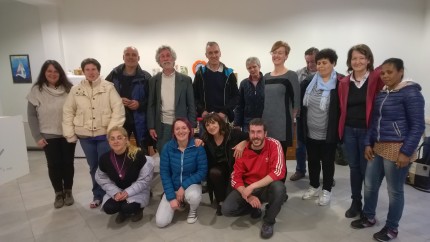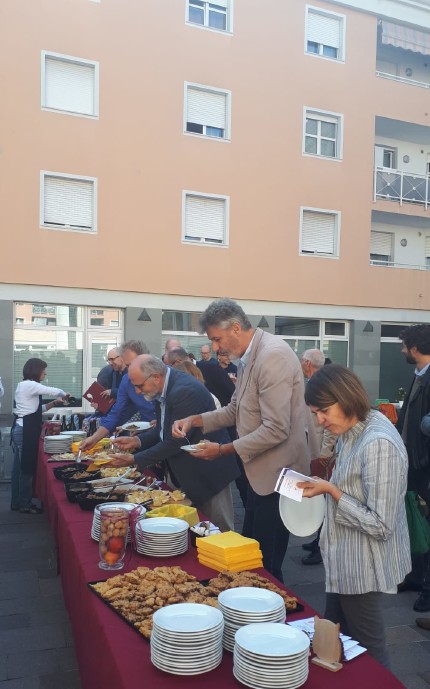"Technological innovation is an increasingly urging challenge for companies"
Ornella Filosi is director assistant at Lavoro SCS, a social cooperative created in Trentino in 2000. It operates in various sectors such as cleaning, catering and gardening, with always the same goal, constructing individualized paths aimed at developing and strengthening personal and professional skills for disadvantaged people.
How do you plan to use the tools and skills acquired through the project and how do you think they could develop or improve your daily work and in general the competitiveness of your business?
Technological innovation is an increasingly urging challenge for companies, which must be able to adapt to the fast changes of the market. Lean and efficient technological tools, in particular for companies (not specifically cooperatives or WISEs) that deal with services such as Lavoro SCS, could help in meeting customers’ needs in a fast and flexible way. However, it is not always easy to identify and select such tools and to understand which are the most functional.
In our cooperative, trying to identify the right tools to improve process management, reduce time and avoid errors, is a daily task. At this stage in particular, when we are undergoing a process of business growth (also following the merger with another company in January 2019), having a broader view of the available products and technologies, and how they are used to solve problems that we also experience, could be useful to construct the future of the company on solid and tested grounds.

Why do you consider this project interesting and why have you decided to take part in the proactive test phase (pilot action)?
First of all because I believe that knowing different realities (and by different I mean both by type of organization and by area of competence or sector) always represents an incentive to broaden our vision and to analyse how we implement processes, or how such implementation can be improved.
Secondly, because the project partners (the Autonomous Province of Trento first, but also Consolida and Fondazione Politecnico) seemed to be reliable and credible, and they were able to encourage us to take an active part in the project.
What is your opinion about the advantage of developing a connection with other European social enterprises/cooperatives and, with these, of participating in projects that can develop skills profile and competitiveness useful to the market?
I strongly underline the importance of comparing different realities. All companies, small ones in particular, but also large companies, often have to deal with the various limits of their capacities (for example, their size, sectoral specialization, lack of knowledge of market dynamics other than those we know) that sometimes make it impossible to access existing opportunities on the market. Getting to know each other, comparing our realities and, if possible, to collaborate and cooperate, can be the key to get to know new opportunities and maybe access them together.
Public administrations use WISEs services; in what way do you think it is possible that WISEs become more visible and able to be a valid supplier?
These are very complex dynamics, in which the political approach (e.g. the network and the representatives in the consortiums, and how they manage to affect the Public Administration’s purchasing processes) can often do more than the credibility and reliability of the single WISEs (aspects which cannot be ignored before starting any commercial relationship, be it with the public or with the private sector).
For this, surely, the first step is to become strong as a system. If the system is well structured, this also contributes to increasing the “validity” of each supplier, because staying in that system means having support and also being “worthy” of taking part to it (e.g. respecting certain standards and rules, including assessments, etc.)

How do you see your WISE in three years (what are the major transformation processes/expectations)?
Our cooperative has been fortunately living a limited but constant growth trend, both from a dimensional and an economic point of view, for some years now. However, a lot of it depends on the relationship with the public administration, which is our main customer, and we all know that such interdependency can be risky. In the coming years, we will keep working, and we expect growth especially in sectors that allow us to break free from this relationship, turning more and more to the private market, where quality really makes the difference.

